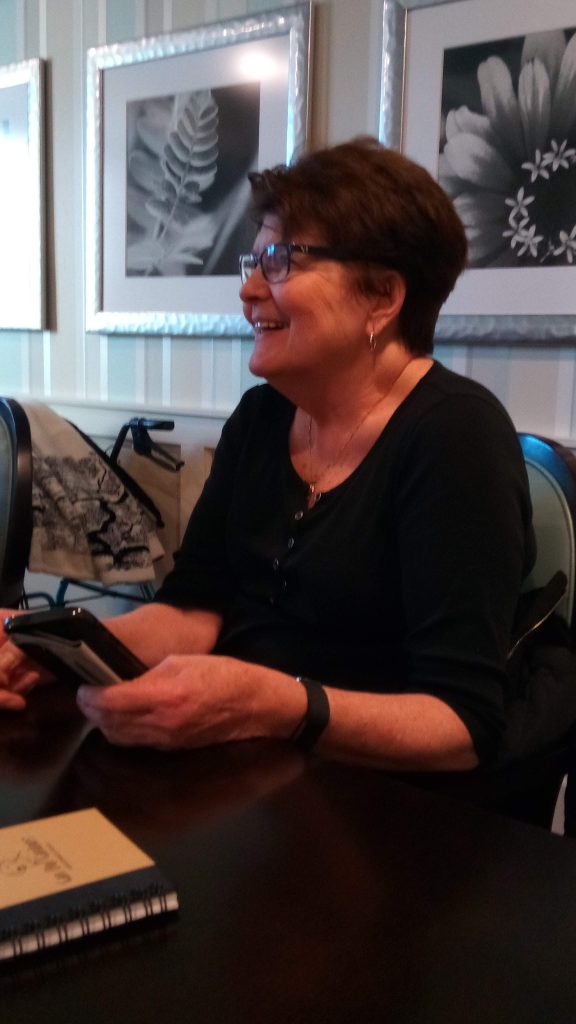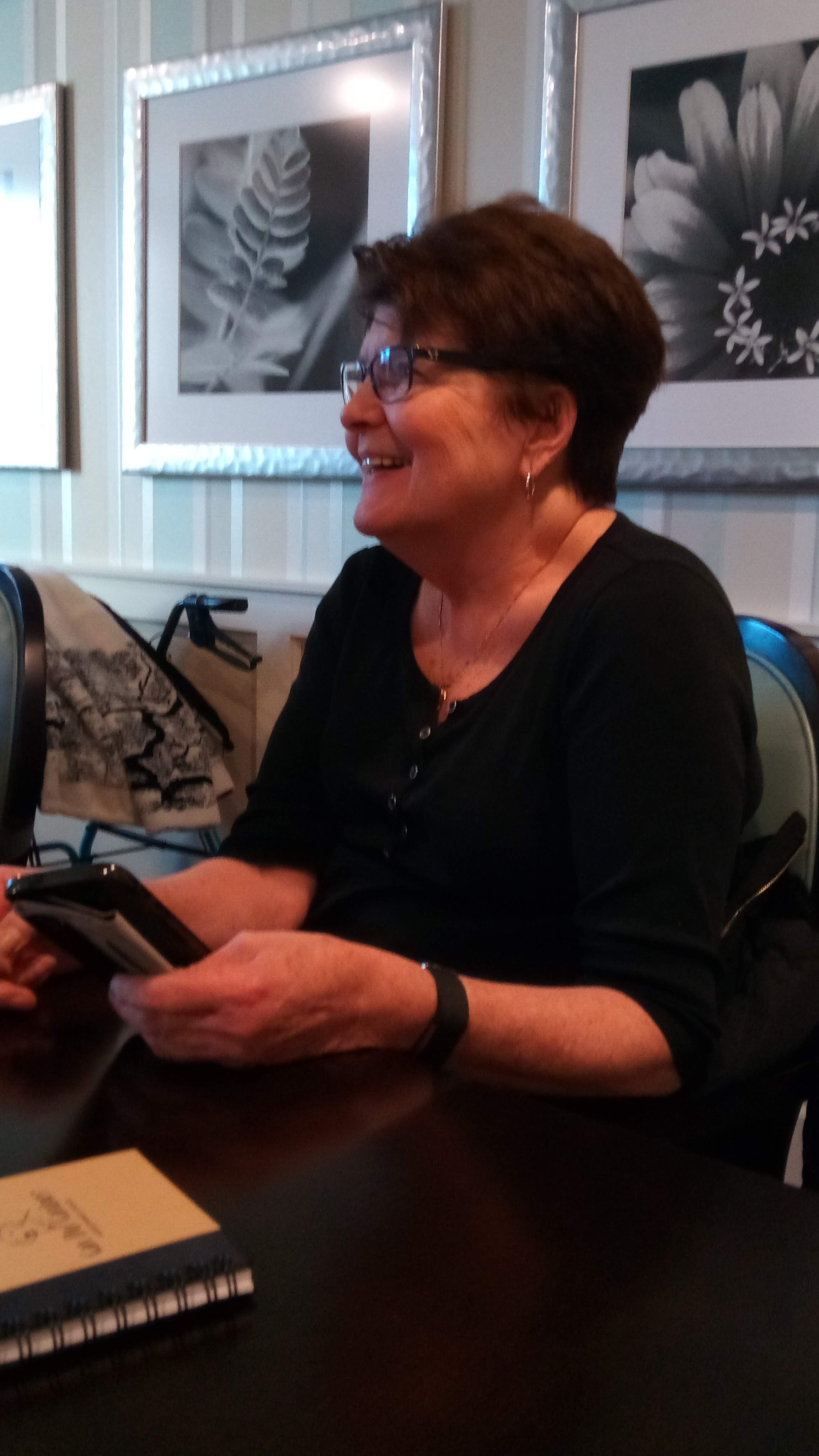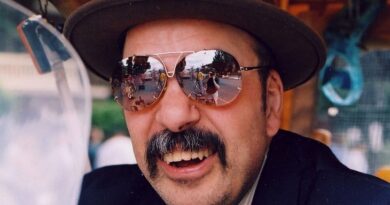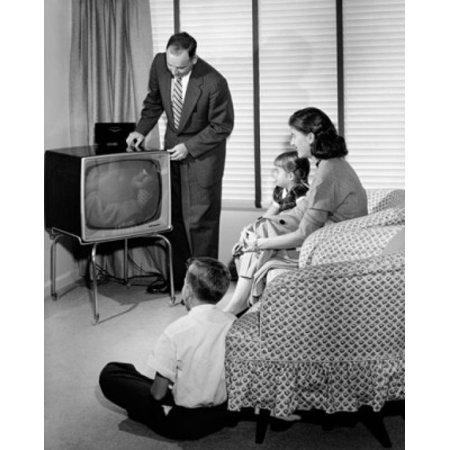Linda Miller: If you can talk, you can write

by Pat Tupper
“If you can talk, you can write.” Linda Miller explained to me. The volunteer leader of a current West Seventh family history writing group continued, “Many people refuse to try to write because they are convinced that they have nothing to say or that no one will want to read it anyway. That’s just not true. You can write about how you grew up; about funny experiences; about things you always wondered about; about the hidden “Black Sheep” in your family; about going to school; about the things that made you laugh or cry. You can write just like you talk. You can write about ancestors. The writers group will simply help you tell the story clearly.”
Linda Miller is a retired Bloomington police officer, co-author of a textbook on community policing (now in its 8th edition), a genealogist, writing instructor and storyteller. She volunteered to become the facilitator of West Seventh family history writing group: “Lifesavers, Saving Lives One at a Time.” The small group came together in 2008 to write those family stories that made up the context of their lives.
The original group developed around Fran Gray, barista of the former Madhatter Coffee Shop owned by her son, Dave Thune. Fran began interviewing customers who might be interested in writing and began looking for someone to guide the group. Linda Miller, then president of the Irish Genealogical Society, had been involved in discussions within the society about the need for a group who would write family stories. She heard by word of mouth that a group was interested in forming in the West Seventh area. She became its leader and assisted in recruiting additional members.
Already an accomplished researcher and genealogist, Linda was ready to take on the responsibilities of leading the West Seventh writing group. As their leader she walked the group through the essentials of what, who, where and why. All of the standard procedures were discussed. How do you recruit members? What rules are needed? Who are you writing for? What kinds of stories? How often do you meet? Does your group need a name?
Always, Linda stayed true to her basic premises. She commented, “No writing experience is needed — you are the expert in how you lived your life.” Stories centered around family holiday celebrations, family expressions like “Caesars Ghost” (which could leave children completely bewildered as to the meaning of the phase) or school experiences, married life, pets and other animals with whom you lived. She cajoled, encouraged, and endured long periods of non-writing from some participants. She displayed stories written by the group at the Minnesota Genealogical Society library, all in addition to continuing her own development as a writer and facilitator.
Under Linda’s tutoring, members figured out what to write about, read stories aloud at the next meeting, laughed at the absurdity of life, cried over remembered schoolyard taunts, pets that died, and about worries about how Santa could find us if we moved. Members began to notice questions that no one in the family would answer. They laughed at embarrassments that now seemed funny and learned how to use spell checkers, edit writings and encourage each other. Often members discovered the stories behind the story.
After ten years of generally monthly meetings the group is looking for new members. Some members have moved, others reached their personal goals and left the group. Still others found their goals changing. Always the remaining members worry about grandchildren who may not be able to conceptualize life before instant communication, when a car was a Model-T or gas and tires were rationed, and telephones hung on the wall as part of party lines.
Please contact the Community Reporter if you are interested in joining the family history writing group.
On a personal note: The writer of this article has benefited immensely from Linda’s guidance. Thank you, Linda.




